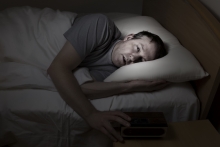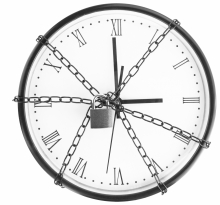If you have just had knee, shoulder or hip surgery, you may want to take anti-inflammatories in the morning or at noon, but not at night. A McGill-led study shows, for the first time, that circadian clock genes are involved in healing from surgery. Indeed, the researchers demonstrated that anti-inflammatory medications are most effective in promoting post-operative healing and recovery when taken during the active periods of our biological clocks.


Does the time of day matter when our body is infected by a parasite? According to new research from McGill University, it matters a great deal.

An international team of scientists has discovered what amounts to a molecular reset button for our internal body clock. Their findings reveal a potential target to treat a range of disorders, from sleep disturbances to other behavioral, cognitive, and metabolic abnormalities, commonly associated with jet lag, shift work and exposure to light at night, as well as with neuropsychiatric conditions such as depression and autism.

Imagine being able to easily get over all of the discomfort and problems of jet lag or night-shift work. Science is not quite there, but recent work by Marc Cuesta, Nicolas Cermakian and Diane B. Boivin from the Douglas Mental Health University Institute and McGill University has opened new therapeutic avenues for improving the synchronization of the body's different biological clocks.

Overnight flights across the Atlantic, graveyard shifts, stress-induced insomnia are all prime culprits in keeping us from getting a good night’s sleep. Thanks to new research from McGill University and Concordia University, however, these common sleep disturbances may one day be put to bed.
